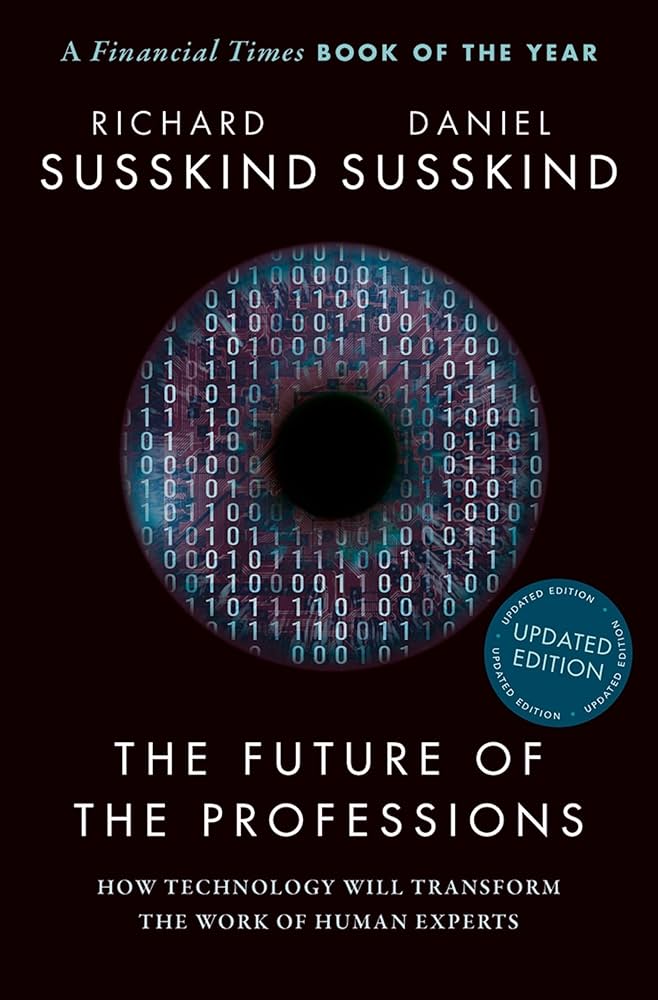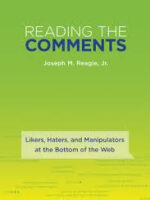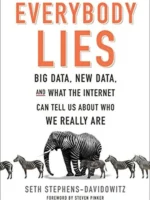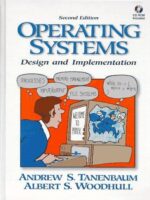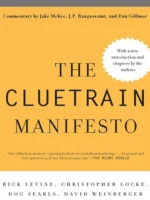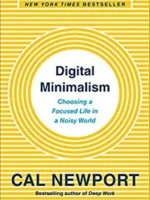The Future of the Professions Review
The Future of the Professions by Richard and Daniel Susskind argues that expertise is being unbundled: tasks once performed by certified professionals (lawyers, doctors, accountants, architects, teachers, etc.) are decomposed, systematized, and increasingly delivered by technology and new institutions. The question is not “if” but “how” professional work transitions from bespoke service to scalable systems.
Overview
The book maps two shifts: from a “craft” model (face-to-face, hourly billing, exclusive knowledge) to a “technology-enabled” model (processes, platforms, and data); from gatekeeping institutions to a broader “production of practical expertise” where clients, platforms, and machines co-produce outcomes. It charts eight futures, from automation inside firms to full platformization and commons-based models.
Summary
The Susskinds dissect why professions arose (as solutions to information scarcity and risk) and show how that logic erodes when knowledge is digitized, search is cheap, and quality can be standardized. They catalog current enablers: knowledge engineering, expert systems, document automation, telepresence, crowdsourcing, online dispute resolution, decision support, and machine learning. They examine business models (subscriptions, platforms, outcome-based fees), regulatory pressure (licensing vs open access), and ethics (duty of care, accountability) as work migrates from one-to-one advice to one-to-many systems.
Authors
Richard Susskind (legal tech/strategy) and Daniel Susskind (economist) blend case studies from law, medicine, tax, audit, architecture, journalism, consulting, and education with a framework that generalizes across professions.
Key Themes
Decomposition of professional tasks; from tacit know-how to explicit processes and data; economies of scale in knowledge delivery; new intermediaries (platforms, communities); ethical and regulatory redesign for system-delivered services; the tension between automation and augmentation.
Strengths and Weaknesses
Strengths: clear frameworks (decomposition, routinization, externalization), wide cross-professional evidence, concrete technology pathways, and policy-aware discussion. Weaknesses: less depth on implementation hurdles inside legacy firms (change management, incentives) and uneven treatment of domains where empathy, trust, or local context dominate.
Target Audience
Leaders in professional firms, regulators, policy makers, product teams building expert platforms, and students planning careers in the professions.
Favorite Ideas
“From bespoke to standardized to systematized to externalized”; outcome-based pricing enabled by data; online courts and ODR; knowledge commons and open courseware as alternative institutions for expertise.
Takeaways
Plan for a hybrid future: unbundle services, codify repeatable parts, and build platforms that combine human judgment with tools. Rethink regulation around accountability and transparency of systems, not just credentials of individuals. Professionals who design and govern these systems—not just deliver hours—will set the next standard of trust and value.

